Census & Elections

Junta’s Planned Election, For What?
General Min Aung Hlaing, the leader of Myanmar’s military junta (the State Administration Council (SAC)), is determined in his belief in organizing elections in 2025, despite the fact that resistance groups are effectively gaining ground in the midst of an ongoing civil war. As reports stated the resistance forces now effectively control significant parts of […] The post Junta’s Planned Election, For What? appeared first on Shan Herald Agency for News.
Conflict
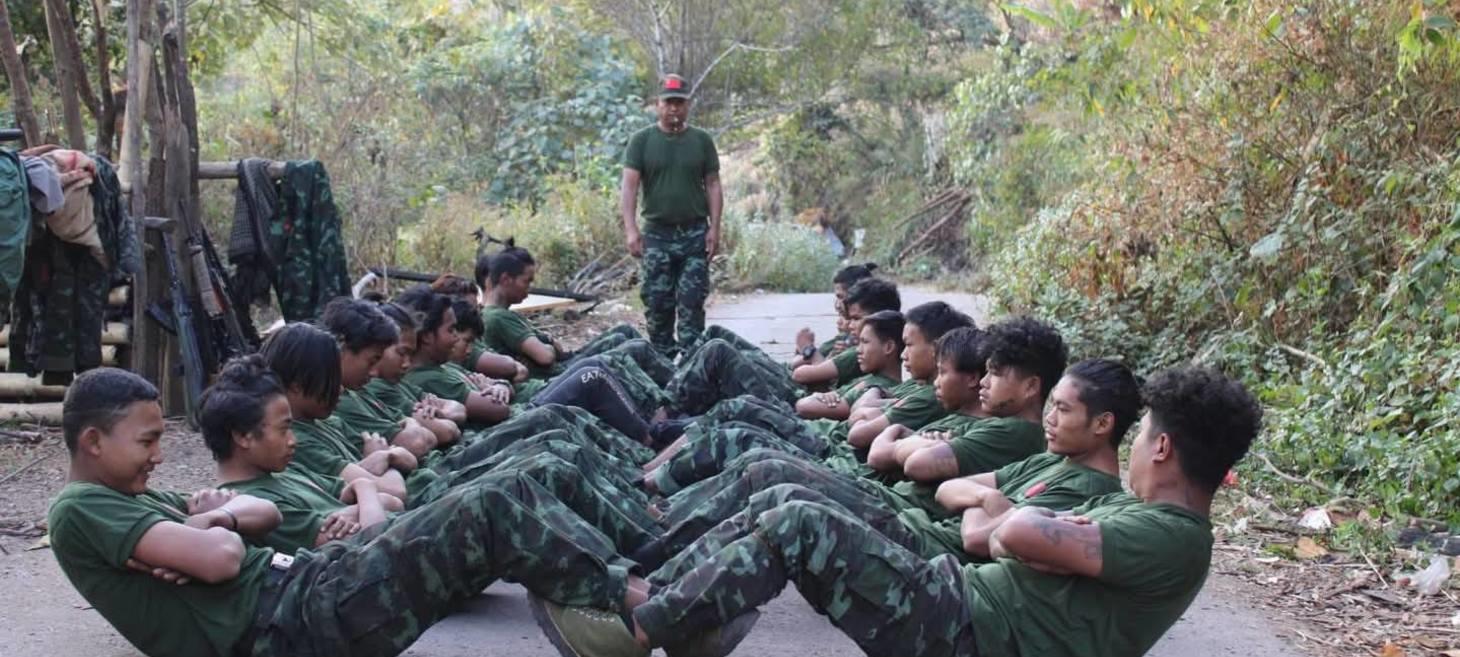
Eight resistance fighters die in combat within 50 miles of Myanmar junta capital
Fighting between the military and anti-junta forces in Myanmar has intensified, with battles occurring less than 50 miles from the administrative capital of Naypyitaw. Eight members of the People's Defense Force (PDF), the armed wing of the National Unity Government (NUG), were killed in clashes in the Bago Region’s Yesagyo Township. PDF units have established bases in Yedashe Township and Bago Region with the aim of capturing Naypyidaw. The fighting took place in the villages of Yae Hlwe and Pein Hne Pin, on the east bank of the Sittaung River. The military has lost control of dozens of towns since the armed anti-junta resistance began in 2021.
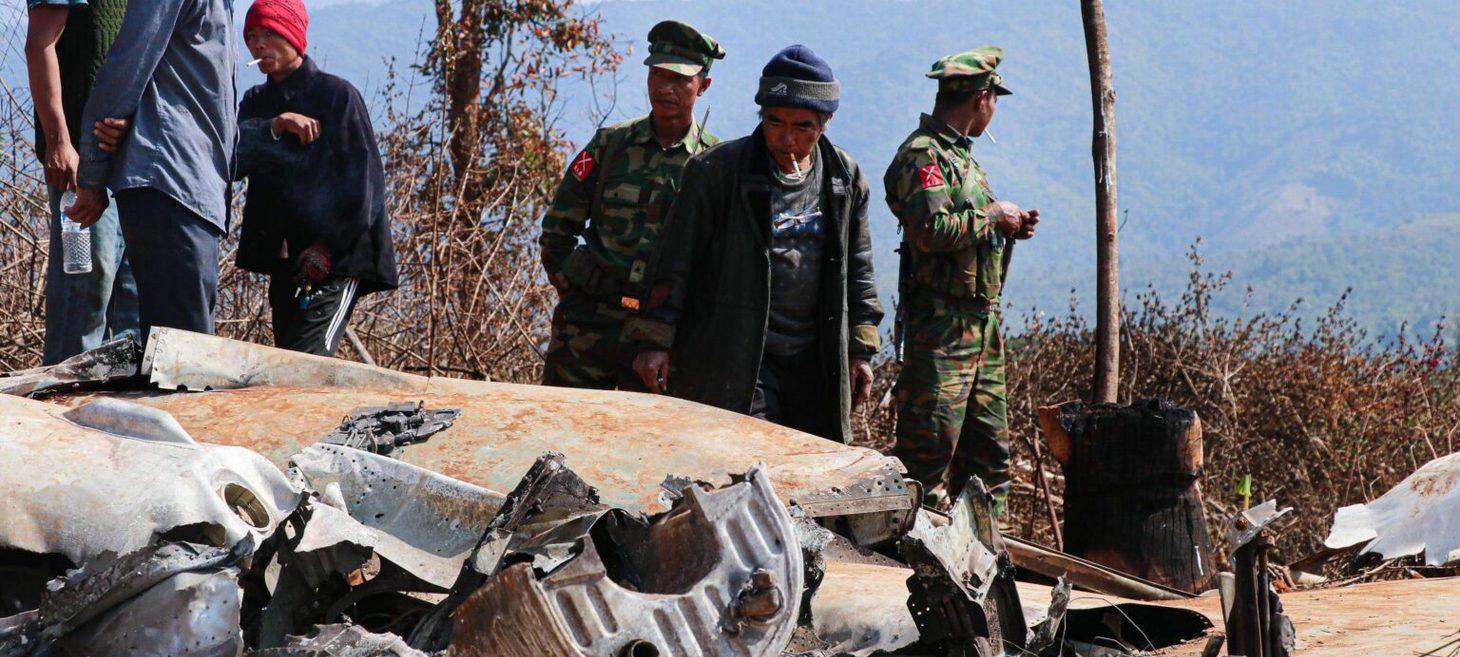
KIA captures southern Kachin State town near Chinese border
The Kachin Independence Army (KIA) and its allied forces have taken control of Mansi, a town in southern Kachin State near the China-Myanmar border, following more than a month of fighting. The KIA-led forces initiated coordinated attacks on bases near the town on December 4 as part of a broader offensive focused on the city of Bhamo. On Wednesday, the KIA captured the Light Infantry Battalions 319 and 601, as well as Artillery Unit 532, in Mansi. In May of last year, KIA and allied Kachin People’s Defence Force (PDF) fighters had seized most of Mansi. The capture of Mansi by KIA-led forces is anticipated to escalate clashes for control of Bhamo.
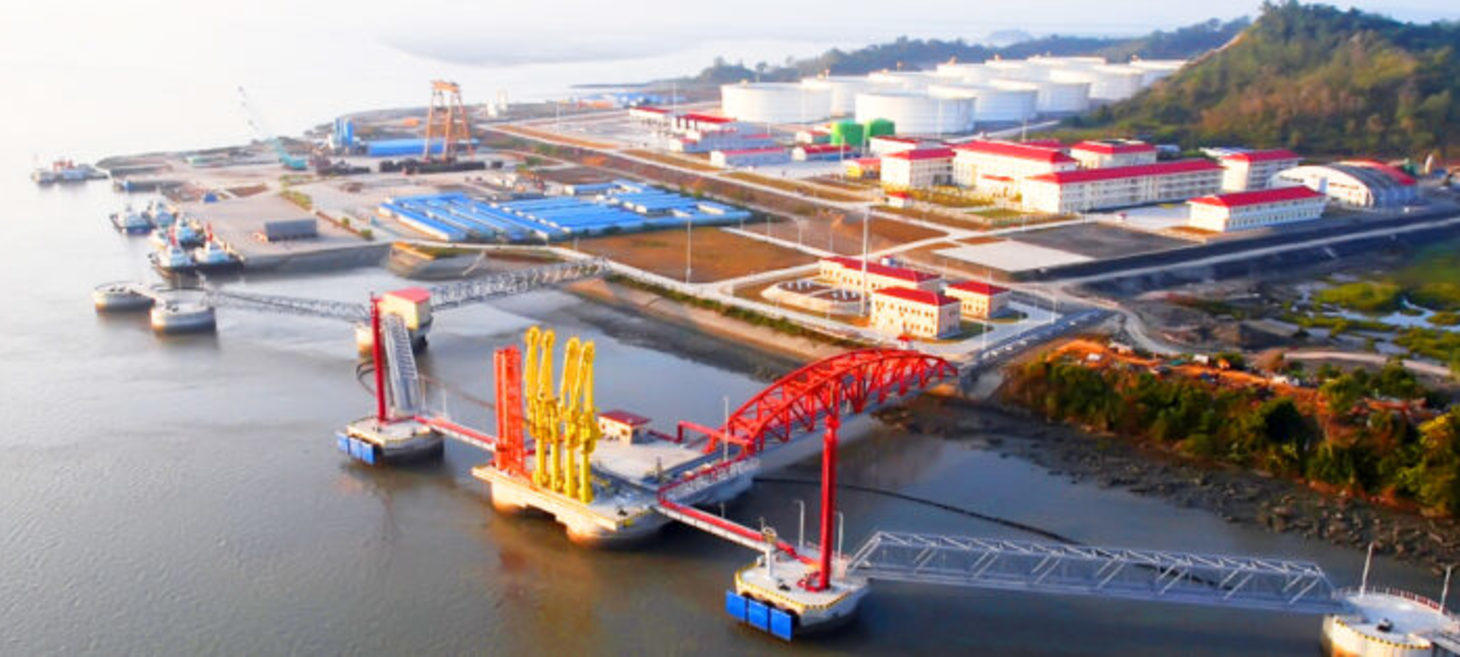
Arakan Army seizes key oil and gas pipeline station, tightening grip on Rakhine State
The Arakan Army (AA) has taken control of the China-Myanmar oil and gas pipeline station in Ann Township, leaving only the Kyaukphyu section of the pipeline, where it originates, outside its control. This pipeline stretches approximately 500 miles through Myanmar, passing through Rakhine State, Magway Region, Mandalay Region, and Shan State before reaching China’s Yunnan Province. The AA's capture of the pipeline's control stations in Rakhine State means that the junta can no longer fully manage it. Operating since 2013, the pipeline generates billions of dollars in foreign currency for the junta each year. It is backed by investments from China’s state-owned CNPC, South Korea’s POSCO, Indian firms, and Myanmar Oil and Gas Enterprise (MOGE), which is currently under Western sanctions. While the pipeline continues to function, there are concerns about how the AA will balance the interests of the public with those of China, especially given the lack of remedies for locals affected by the projects under previous governments. The AA has pledged to protect foreign investments, including Chinese projects, that contribute to regional development in Rakhine State.
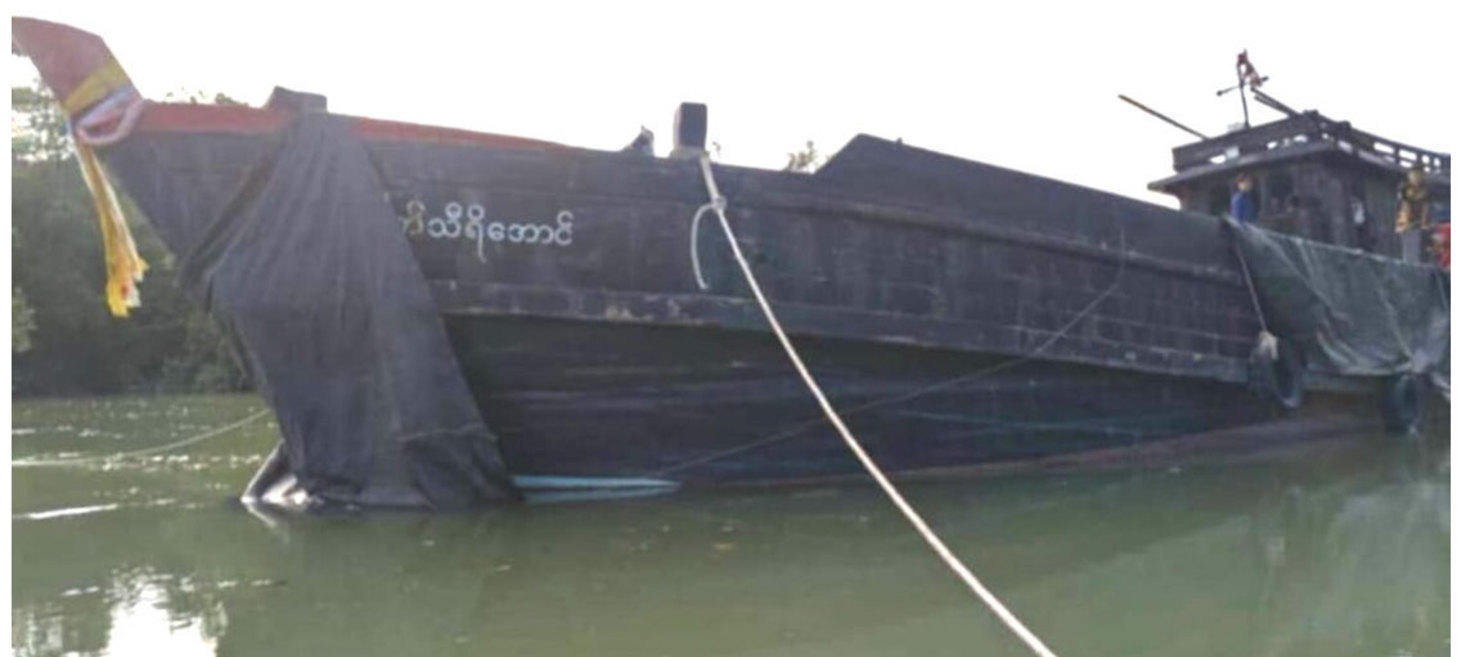
Karen armed group intercepts vessel carrying Myanmar military’s supplies in Andaman Sea
The Karen National Liberation Army (KNLA) intercepted a vessel in the Andaman Sea that was carrying supplies for the Myanmar military. Battalion 11 of the KNLA stopped and boarded the ship in waters claimed by KNLA Brigade 4, uncovering over 2,000 sacks of rice and other food items. The KNLA reported that the vessel was connected to a leader of a junta-trained militia in Tanintharyi Township. In addition to confiscating the supplies, the Karen group destroyed some military-manufactured goods. The KNLA asserted that the interception of the vessel showcases its reach and power. The incident occurred on January 7, 2025.
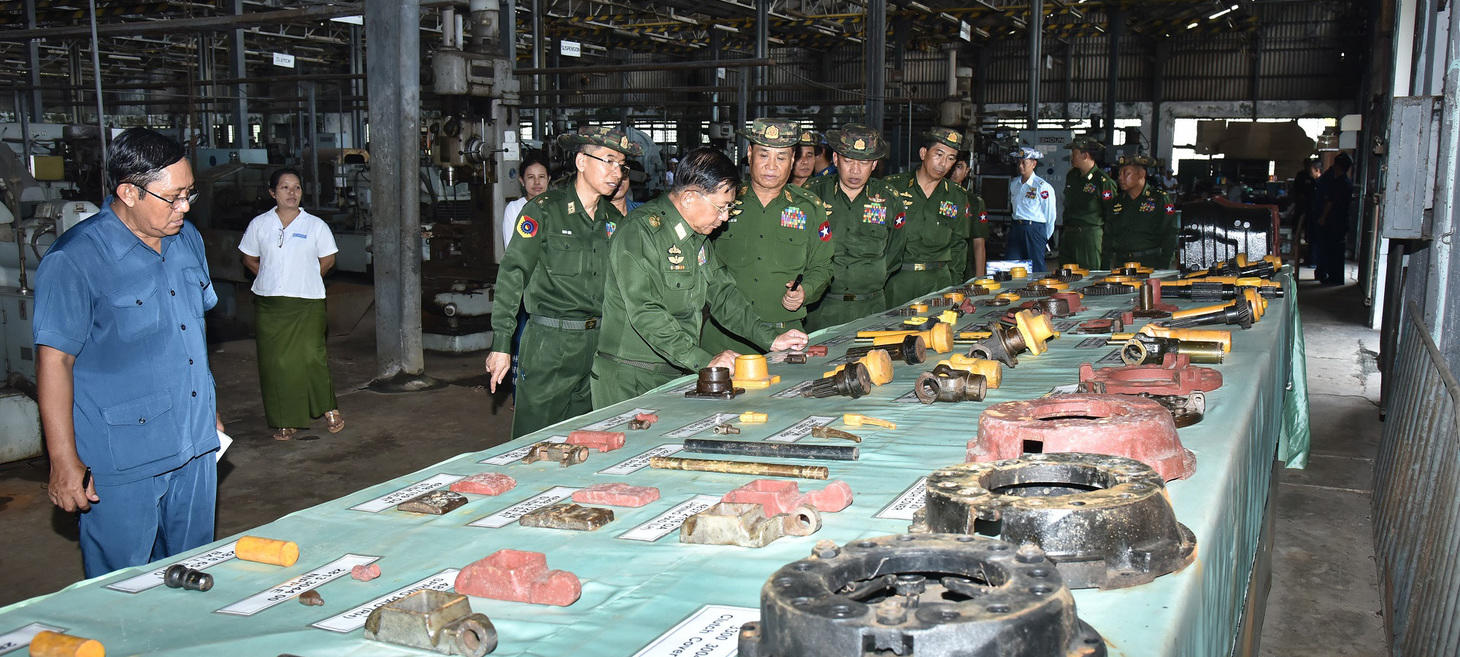
Arakan Army Has Myanmar Junta’s Weapons Factories in Its Sights
The Myanmar military's weapons factories are now vulnerable to attack by resistance forces, particularly the Arakan Army (AA), following the AA's capture of key military strongholds in Rakhine State. There are 25 weapons factories in Myanmar, most of which are located in the Magwe and Bago regions on the west bank of the Irrawaddy River. These factories produce various types of munitions, including missiles, RPGs, mortars, artillery shells, and bombs. The Irrawaddy River and the Arakan Mountains previously served as natural barriers, but with the AA's recent advances, the factories are now exposed from the west. The AA has begun attacking junta strongholds in the area, and anti-regime forces have taken control of the Ann-Padan road, which provides access to the factories. The factories themselves are believed to be poorly guarded by military personnel who have little combat experience. Additionally, the AA is expected to utilize captured weapons in their advance on the factories.
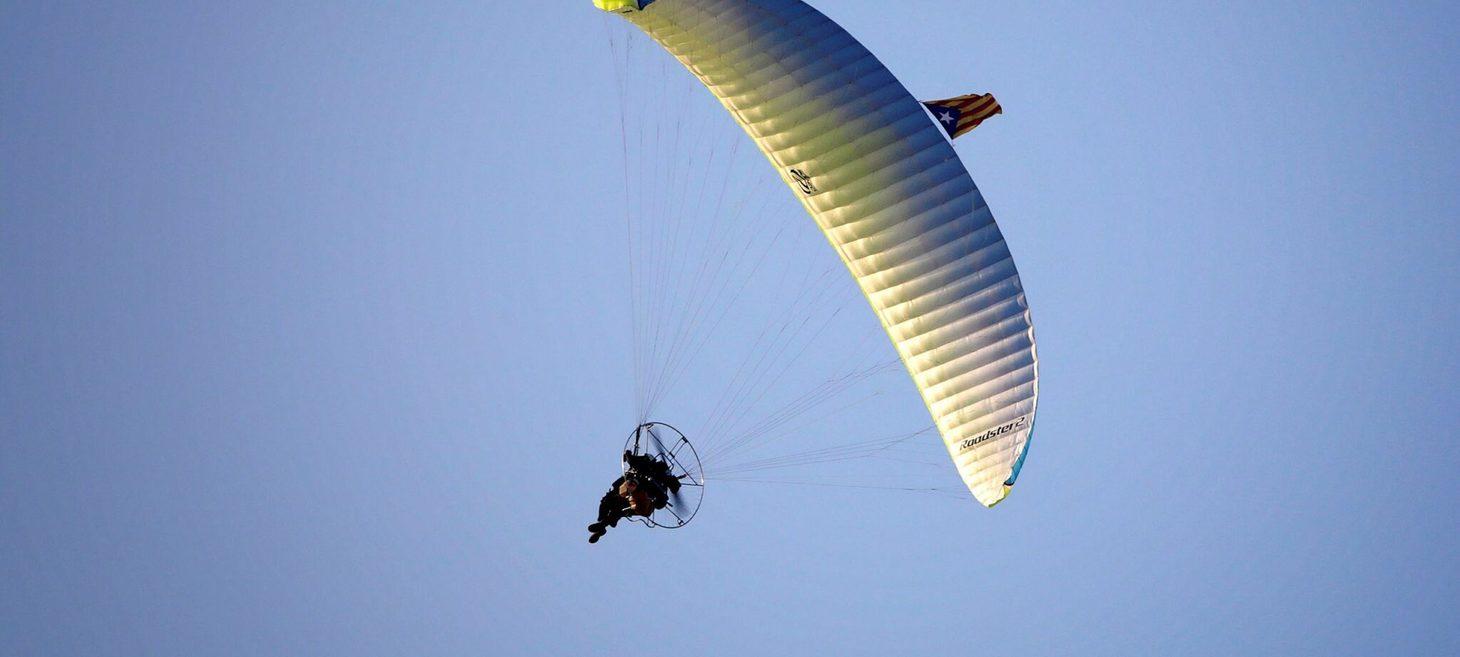
Myanmar junta using paramotors to bomb villages in Mandalay, Sagaing regions
The Myanmar military has started using paramotors, or powered paragliders, to carry out aerial attacks on villages in central Myanmar. These attacks, which began in December 2024, have been reported in the Mandalay and Sagaing regions. The first paramotor attack took place in Za Yat Gyi village, located in Taungtha Township, Mandalay Region. Subsequently, similar attacks were reported in Ngazun Township, Mandalay Region, and Sagaing Township. One incident in Tha Kyin village in Ngazun Township resulted in the deaths of five people, including children. Resistance forces are reportedly unprepared and ill-equipped to defend against these new forms of aerial assaults.
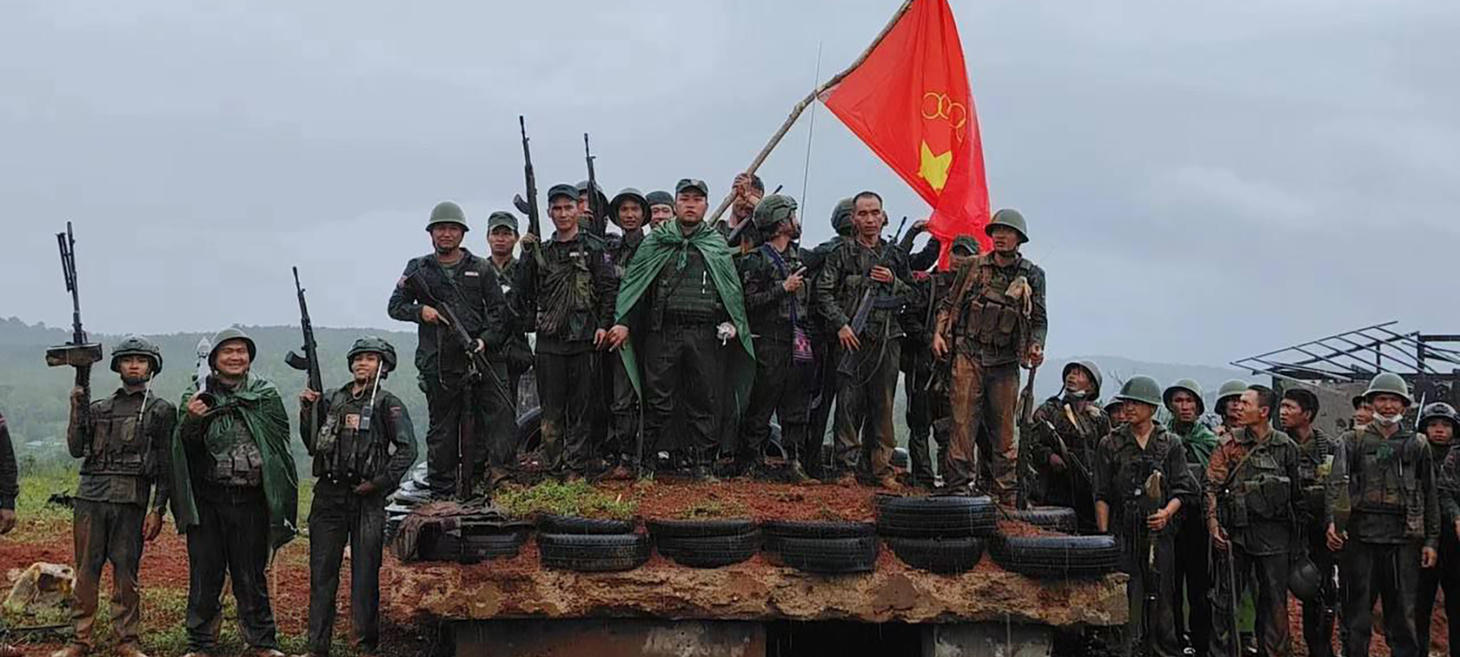
Junta’s Writ Only Runs in One-Third of Myanmar: NUG
According to a report by the National Unity Government (NUG), the military regime in Myanmar controls only 32 percent of the country, which amounts to 107 out of 330 townships. Resistance forces, including People’s Defense Forces (PDFs) and ethnic armed organizations (EAOs), control either entirely or largely 144 townships, representing 44 percent of Myanmar. These groups have fully captured 48 townships and have largely taken over another 86, where they have established civilian administrations, besieged junta positions, and limited junta troop movements. Fighting is still ongoing in 79 other townships. Resistance groups have also gained control over key strategic routes, including major roads and railways, as well as vital routes along several rivers. Moreover, the military regime has lost control of 11 critical trade towns located on the borders with China, India, Thailand, and Bangladesh. The report further details that over the past year, the military has endured significant losses, including 315 officers killed, 127 injured, 14,093 soldiers and border guard police killed, and 7,363 injured. Additionally, the regime has lost control of 140 battalions along with numerous bases and commands. Since the coup, nearly 15,000 soldiers and police officers have joined the civil disobedience movement, with over 480 taking on revolutionary duties in the PDFs.
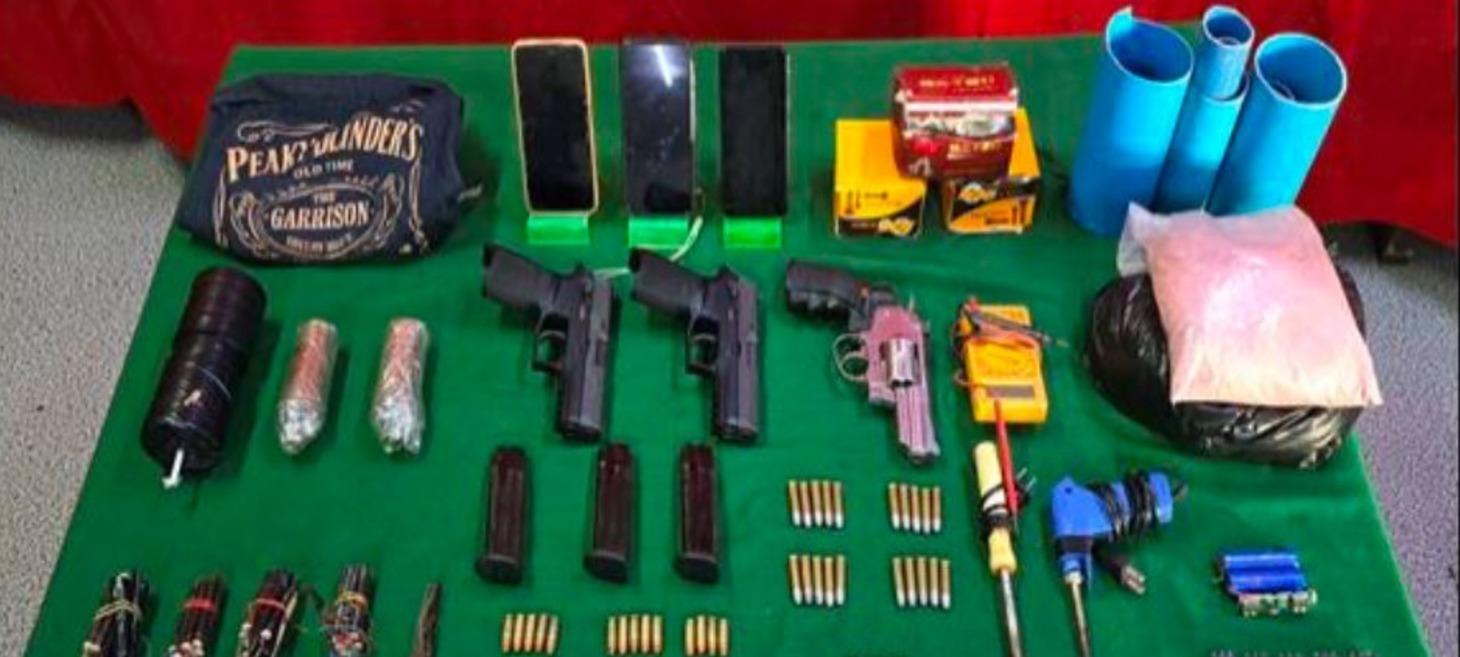
Junta arrests seven for alleged role in urban guerrilla attacks in Yangon
The Myanmar junta has arrested at least seven people, including two women, for allegedly participating in urban guerrilla attacks in Yangon. The individuals are believed to be members of the "Together Urban Force," which is accused of attempting to assassinate a military officer on December 22. The officer, Major Zeyar Min, sustained minor injuries in the attack. Both the Together Urban Force and the Yangon Phoenix guerrilla groups claimed responsibility for the attack on the same The Myanmar junta has arrested at least seven people, including two women, for allegedly participating in urban guerrilla attacks in Yangon. These individuals are believed to be members of the "Together Urban Force," which is accused of attempting to assassinate a military officer on December 22. The officer, Major Zeyar Min, sustained minor injuries during the attack. Both the Together Urban Force and the Yangon Phoenix guerrilla groups claimed responsibility for the attack on the same day. A week later, three men were arrested for allegedly acting as scouts in the same assassination attempt. The junta asserts that the arrested individuals were involved in a series of recent attacks targeting military officers. Other articles in the same publication mention additional conflicts throughout Myanmar. day. A week later, three men were arrested for allegedly acting as scouts in the same assassination attempt. The junta claims that the arrested individuals were involved in a string of recent attacks targeting military officers. Other articles in the same publication mention other conflicts around Myanmar.
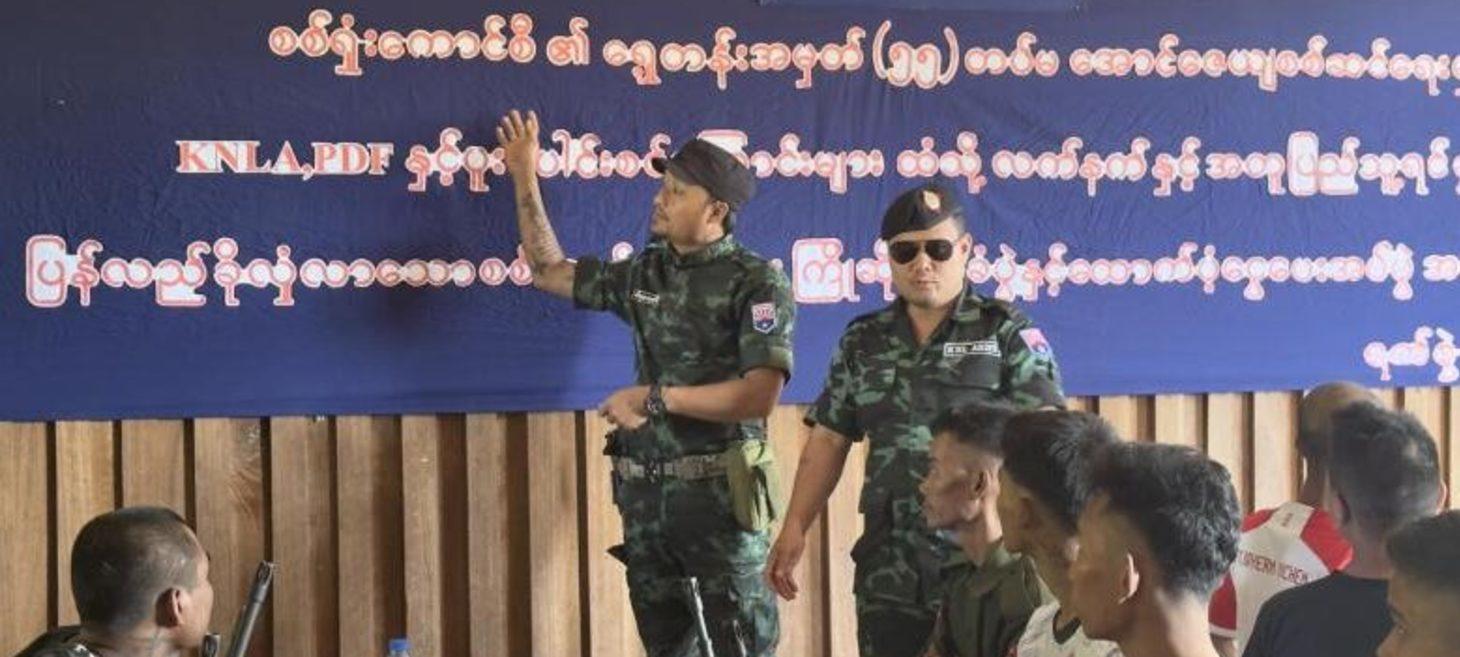
60 Junta Soldiers Surrender on Myawaddy to Kawkareik Roads
Around 60 junta soldiers surrendered to the Karen National Liberation Army (KNLA) and allied people’s defense forces (PDFs) during the junta's Operation Aung Zay Ya, which aimed to regain control of the Asia Highway between Myawaddy and Kawkareik in Karen State. Additionally, 10 junta soldiers were captured in skirmishes on the roads. In the ten months leading up to December 2024, many junta troops surrendered—some waving white flags or being captured in combat—with about 30 soldiers surrendering in November near Kawkareik and another 30 to the KNLA’s Cobra Column on the Myawaddy front. The KNLA provided cash rewards, healthcare, and family contact assistance to 30 of the surrendered soldiers on December 31, 2024. The junta continues to use artillery, rockets, and drone strikes along the Asia Highway section, while ground forces persist with Operation Aung Zay Ya. Some soldiers surrendered unarmed, while others brought artillery shells, grenades, and bullets with them.
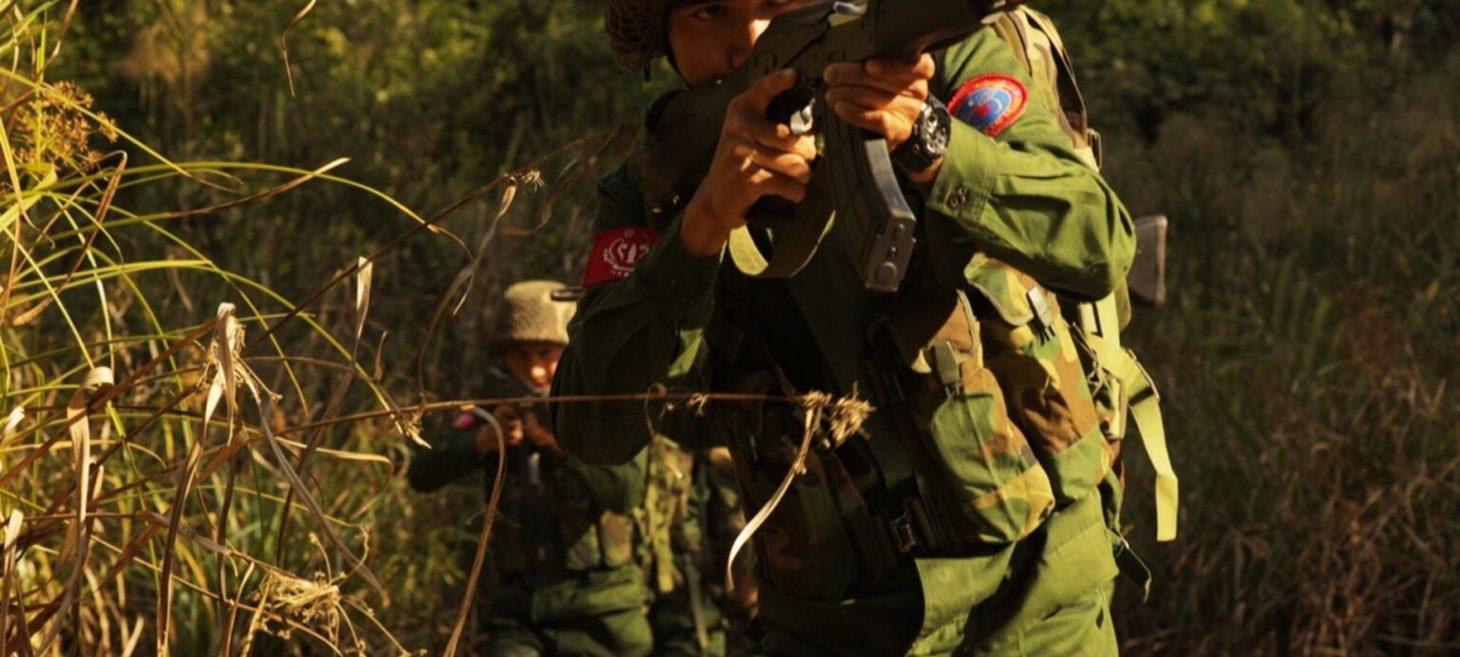
AA attacks Myanmar army base on Rakhine State’s eastern border as airstrikes continue
Fighting has intensified near the border between Rakhine State and Bago Region, as the Arakan Army (AA) and allied forces have been attacking a junta outpost in Taungup Township, Rakhine State. The AA, an ethnic armed organization, has seized control of most townships in Rakhine State from the Myanmar military and is currently assaulting the "Taung Pone Gyi" outpost. Clashes are expected to escalate near the Rakhine-Magway and Rakhine-Ayeyarwady borders. The AA has not yet disclosed information regarding these conflicts. The fighting occurs as the Myanmar military faces other challenges, such as power outages and losses of territory to anti-junta forces in other regions.
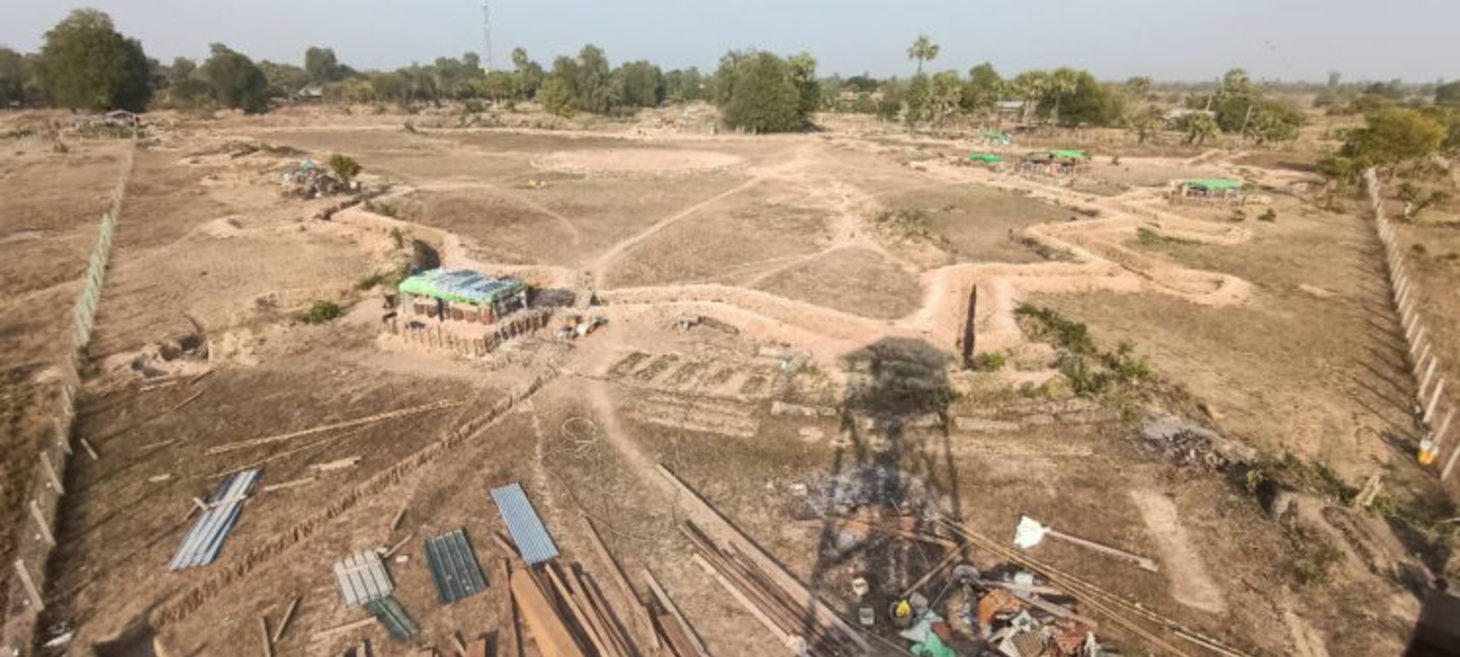
Junta Fortress in Sagaing Falls After Yearlong Siege
After a year-long siege, junta troops abandoned a police station in Kutaw village, located in the Budalin Township of Sagaing Region. The People’s Defense Force (PDF) groups had cut off supply routes, forcing the junta to withdraw. The PDF had attacked the police station three times and ambushed reinforcements sent by the junta. In September, the regime dispatched 85 soldiers to rescue the station, but nearly all were killed. In a subsequent attempt, the junta used civilians as human shields to assist in rescuing soldiers and equipment from the police station. By the time the junta vacated the station, only 30 soldiers and police remained. The PDF seized equipment from the station, while the fleeing troops planted landmines. Junta troops abducted 200 civilians as they departed the police station, and one abductee was killed while attempting to escape. Approximately 200 junta personnel are still stationed at two locations near Budalin, reportedly preparing for additional raids.
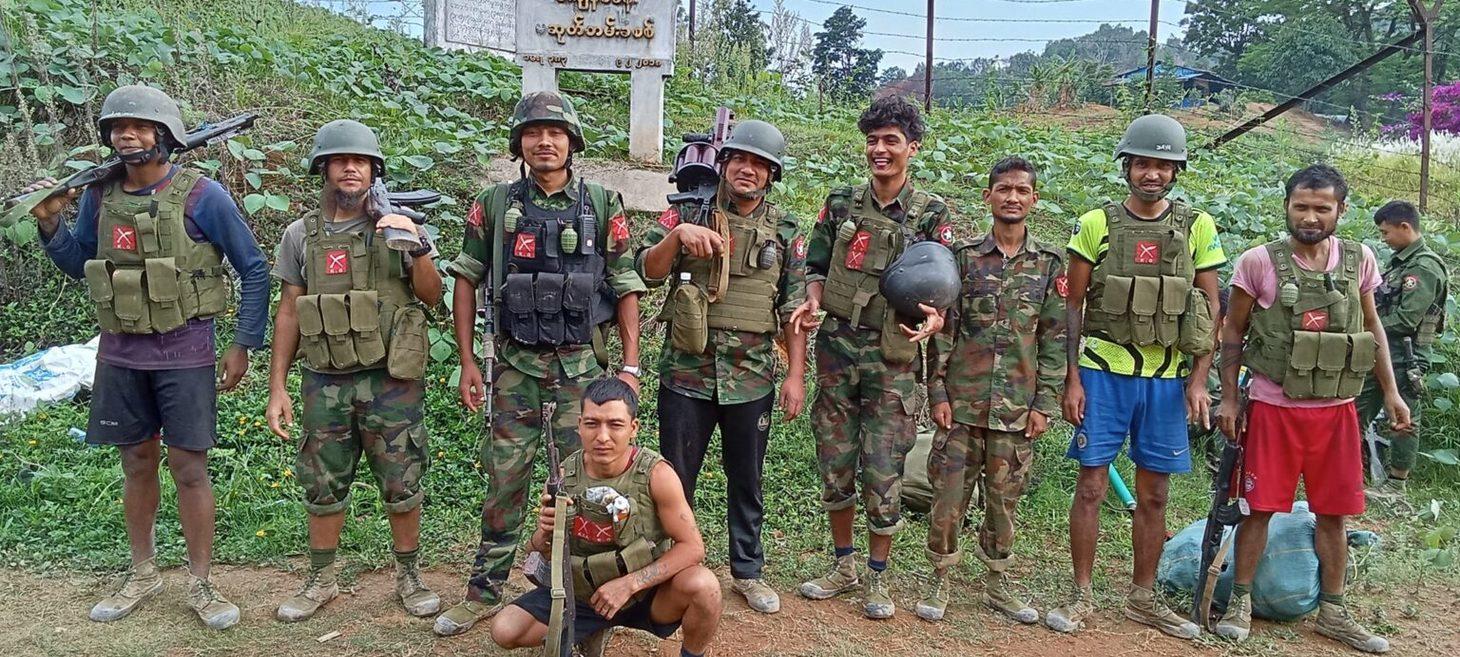
KIA offensive sparks heavy fighting in Bhamo, forcing civilian evacuations
The Kachin Independence Army (KIA) and allied forces have intensified their offensive against Myanmar’s military in Bhamo, a key junta stronghold near the Chinese border, leading to fierce clashes. The KIA has been conducting an offensive for nearly a month to capture the city. Military snipers are reportedly positioned in high-rise buildings, and airstrikes have hit civilians sheltering in monasteries. The fighting is ongoing at multiple locations, including the Infantry Battalion 47 base and MOC-21 headquarters, which the junta is heavily defending. The KIA has reportedly seized several junta army bases south of Bhamo. The conflict has forced many residents to flee, with groups assisting in transportation to other areas. Civilian casualties have been reported due to artillery strikes, and the safety of shelters, such as monasteries, has become compromised.
Conscription
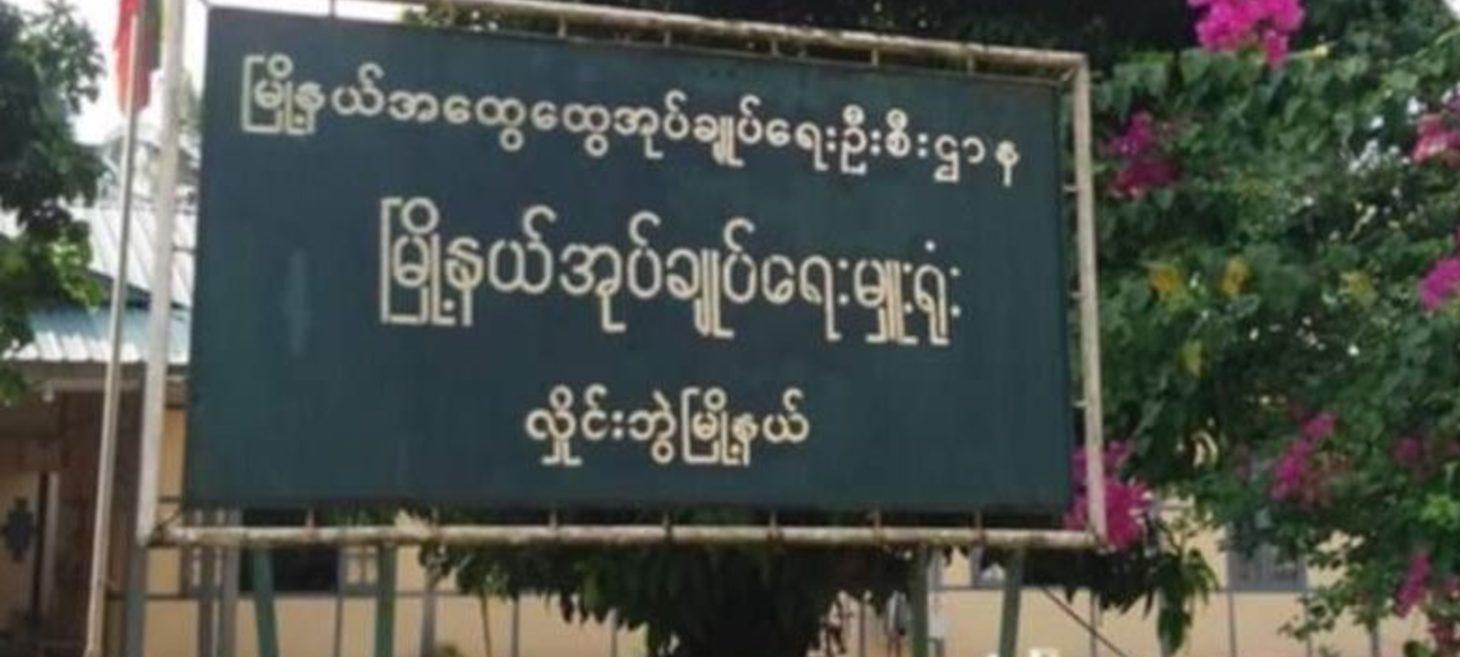
Hlaingbwe Town, Karen State Must Provide Four Conscripts Every Month
Hlaingbwe Town in Karen State is facing increased conscription demands, with ward administrators now required to provide one conscript per month, a change from the previous requirement of one conscript every three months. This order applies only to the four wards of Hlaingbwe Town, where the junta has control. The town's residents are also reportedly required to make monthly payments to ward administrators to support the conscripts. Due to this conscription, many young people Hlaingbwe Town in Karen State is facing increased demands for conscription. Ward administrators are now required to provide one conscript per month, a shift from the previous requirement of one conscript every three months. This order applies only to the four wards of Hlaingbwe Town, where the junta maintains control. Residents of the town are also reportedly required to make monthly payments to ward administrators to support the conscripts. As a result of this conscription, many young people have fled to areas controlled by ethnic armed organizations (EAOs) or sought refuge in Thailand. This marks the eighth round of conscription since the law was implemented in February 2024. The villages in Hlaingbwe Township, which are primarily under the control of the Karen National Union (KNU), have been exempted from these conscription requirements. have fled to areas controlled by ethnic armed organizations (EAOs) or sought refuge in Thailand. This is the eighth round of conscription since the law was enforced in February 2024. The villages in Hlaingbwe Township, which are mainly under the control of the Karen National Union (KNU), have been exempted from the conscription requirements.
Crime & Narcotics
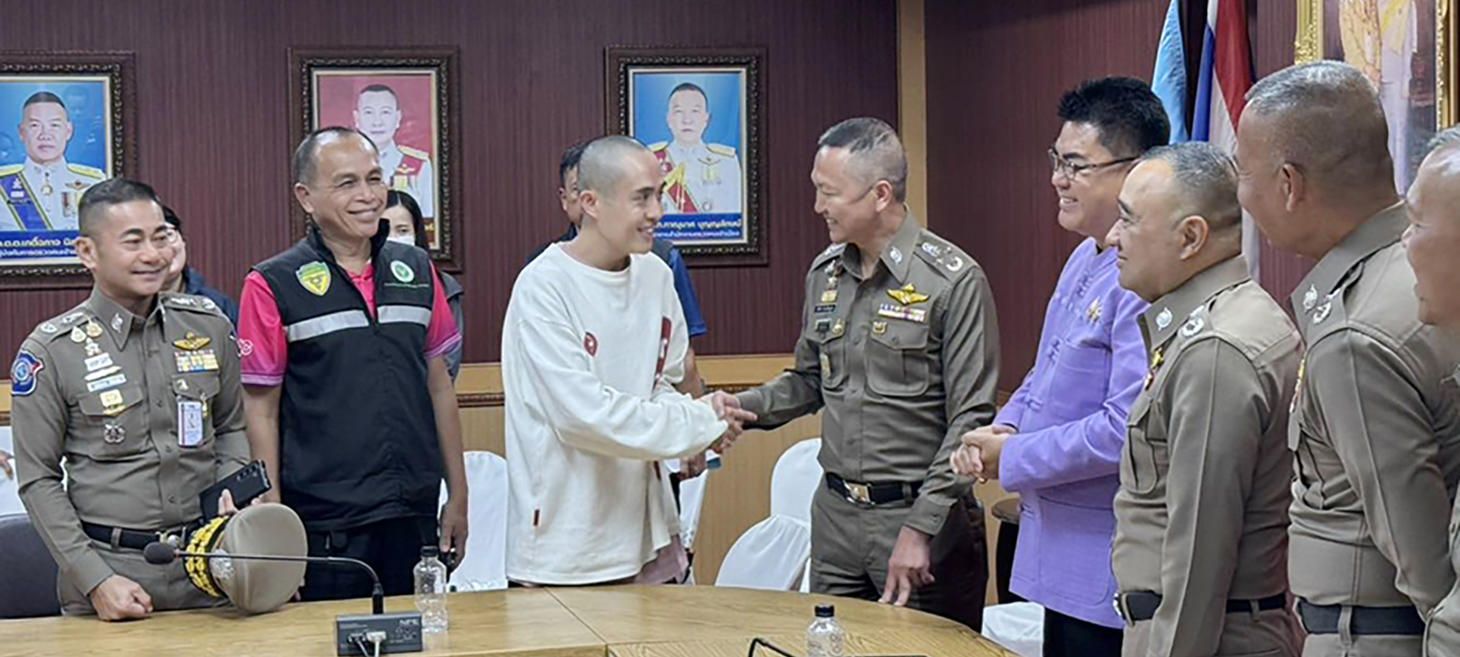
Chinese Actor Rescued from Scam Operation in Myanmar
A Chinese actor known as Xingxing was rescued by Thai authorities after being lured to the Thai-Myanmar border under the pretense of a film role. He was taken to a scam operation in Myanmar, where he was forced to train as a scammer. This operation was run by Chinese gangsters and the Karen Border Guard Force (BGF), a local militia associated with Myanmar’s junta. Xingxing admitted that he felt powerless to resist after realizing he had been deceived. He had been training for a few days, learning to type fraudulent messages aimed at Chinese people. The incident became a trending topic in China, raising concerns for Thailand about potential damage to their tourism industry. Thai Prime Minister Paetongtarn Shinawatra is working to mitigate the fallout. The UN Office on Drugs and Crime has reported that billion-dollar cyber scam operations have been expanding in Myanmar, Laos, and Cambodia.
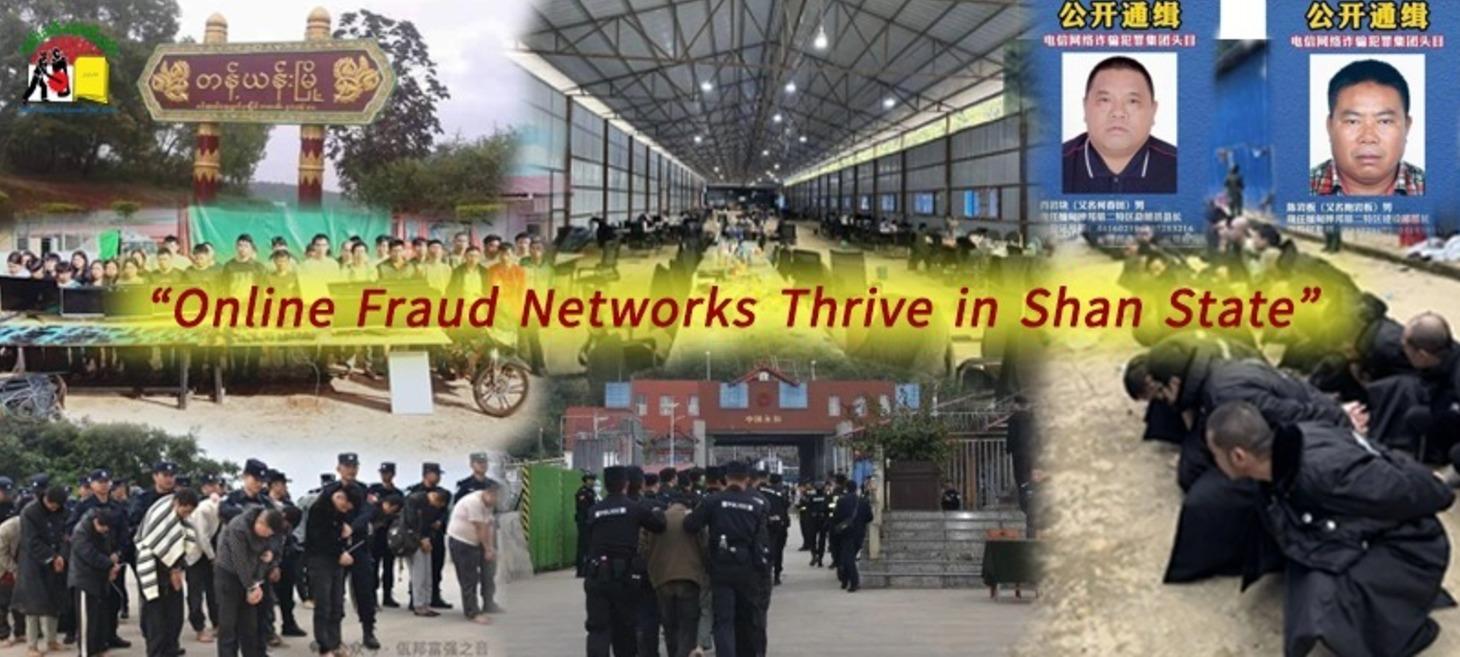
Cyber Scams Networks Thrive in Shan State
Cyber scam networks are flourishing in Shan State, with operations extending from the Myanmar-China border to regions controlled by militias and ethnic armed groups. These scams, often masquerading as warehouses, have supplanted former rubber plantations. Chinese scammers take advantage of political instability, paying armed groups for safe passage and protection. Local residents are employed at these scam centers, frequently receiving substantial salaries. The online fraud rings attract unemployed youth by promising jobs in conflict-affected areas. The United Wa State Army (UWSA) and other groups have detained and transferred numerous suspects to China, sometimes circumventing formal extradition processes. Despite government crackdowns, these scam operations persist, with armed groups appearing to cooperate with China while accepting bribes.
Economy
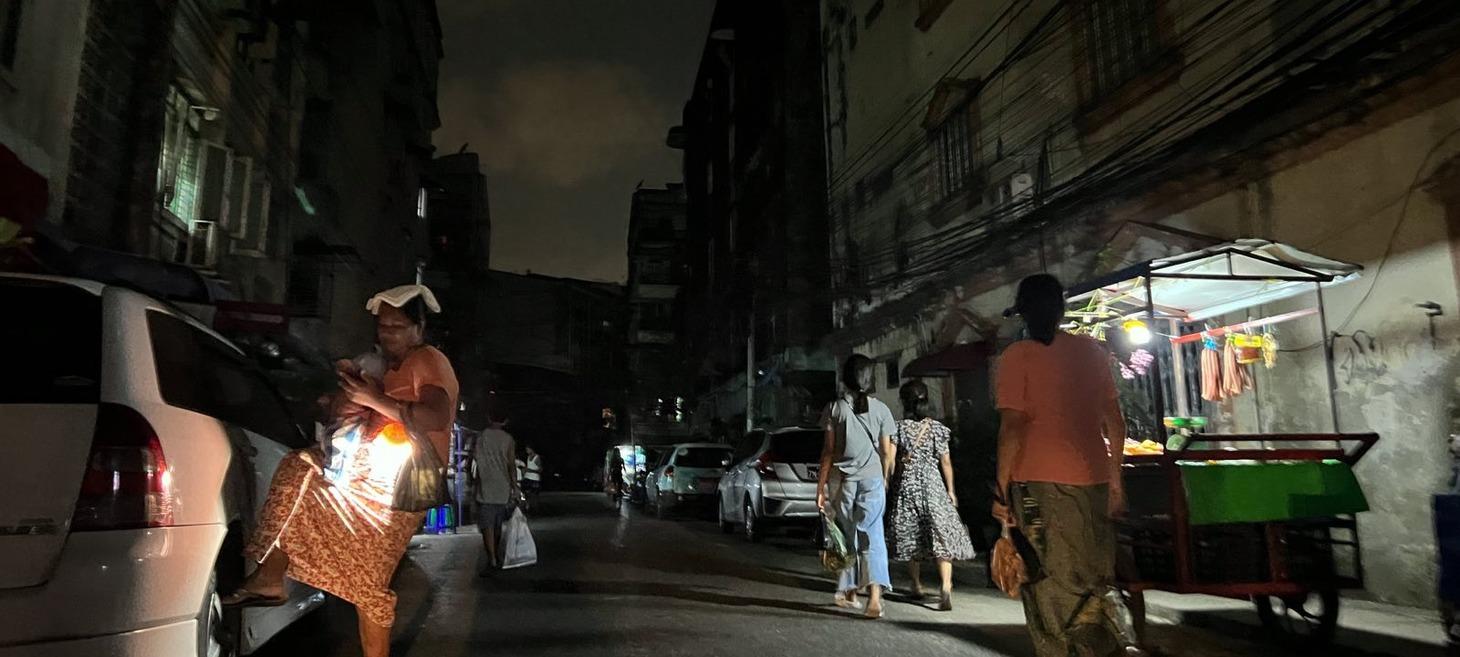
Myanmar suffers worsening power cuts as junta prioritizes military zones
Power outages in Myanmar have worsened, with the junta implementing a new power rotation system that prioritizes military zones over civilian areas. Military residential areas, including junta chief Min Aung Hlaing's office, receive uninterrupted power through dedicated solar power systems, while cities like Yangon and Naypyitaw face significant outages. In Naypyitaw, residential areas get 16 hours of electricity per day, while staff housing areas receive 18. Yangon endures daily outages of 16 hours, with only eight hours of electricity available, whereas Mandalay experiences 18-hour outages, though residents report receiving even less power than the regime claims. The junta cites flood damage and resistance attacks on power lines as reasons for the outages, while asserting that they generate 4,000 megawatts of power through various sources. Consequently, residents are purchasing transformers and high-powered batteries for emergency use, facing difficulties in daily activities such as pumping water and cooking.
General News
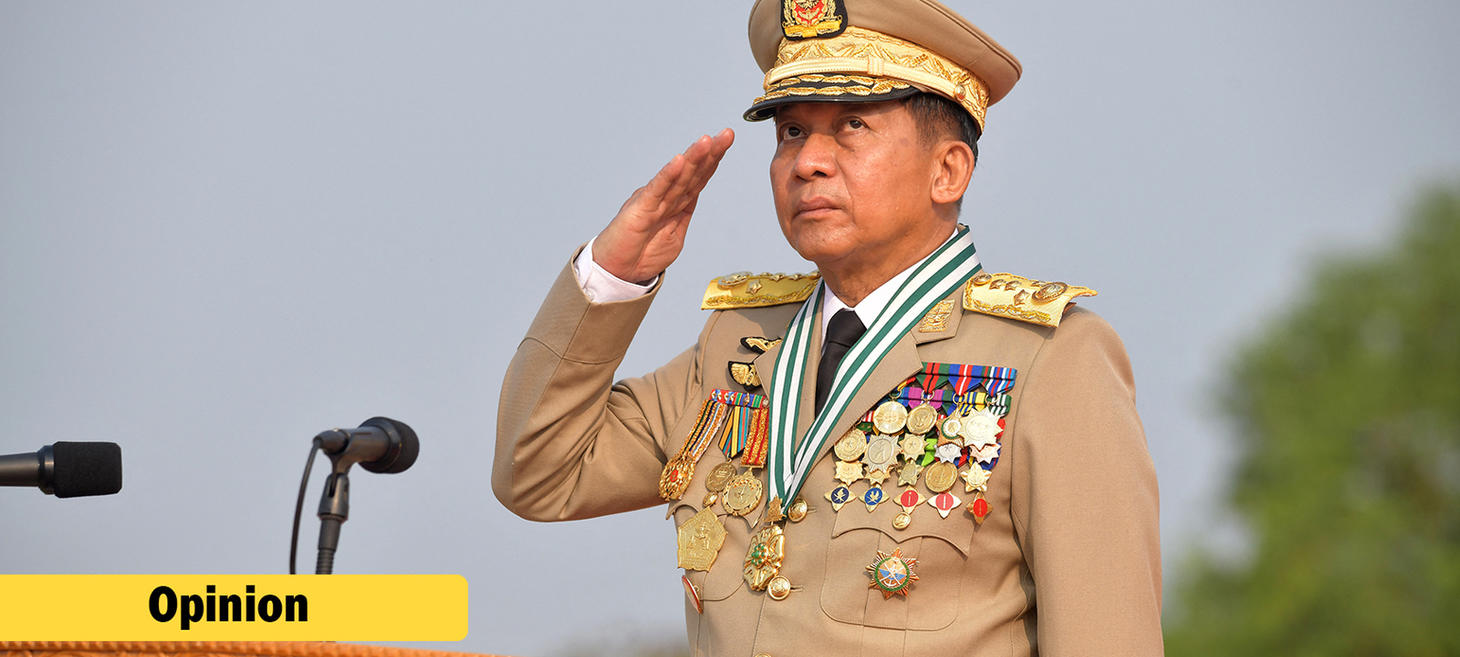
Contemplating the Fall of Myanmar’s Junta
The fall of Myanmar's junta is a complex issue with many potential outcomes. It is unclear what a "fall" would entail; it could mean the collapse of the State Administration Council (SAC) or the military as a whole, and a replacement regime could be even more ruthless. There are concerns that a collapse could lead to infighting among various groups. The National Unity Government (NUG) has set a goal to reach a "tipping point" in 2025, similar to the ousting of Assad in Syria, but the situations are very different. International intervention is unlikely to play a significant role, as Western nations have made it clear they will not provide military assistance, and China is pursuing its own interests in the region. The military has demonstrated a surprising ability to withstand losses and maintain its power. While the NUG reports that the military has suffered heavy casualties, these figures may be unreliable and do not necessarily indicate an imminent defeat. Many factors, both internal and external, could contribute to a fall, but the timing remains uncertain and could come as a surprise. The key challenge for anti-regime forces is to plan ahead for a variety of potential scenarios.
Humanitarian
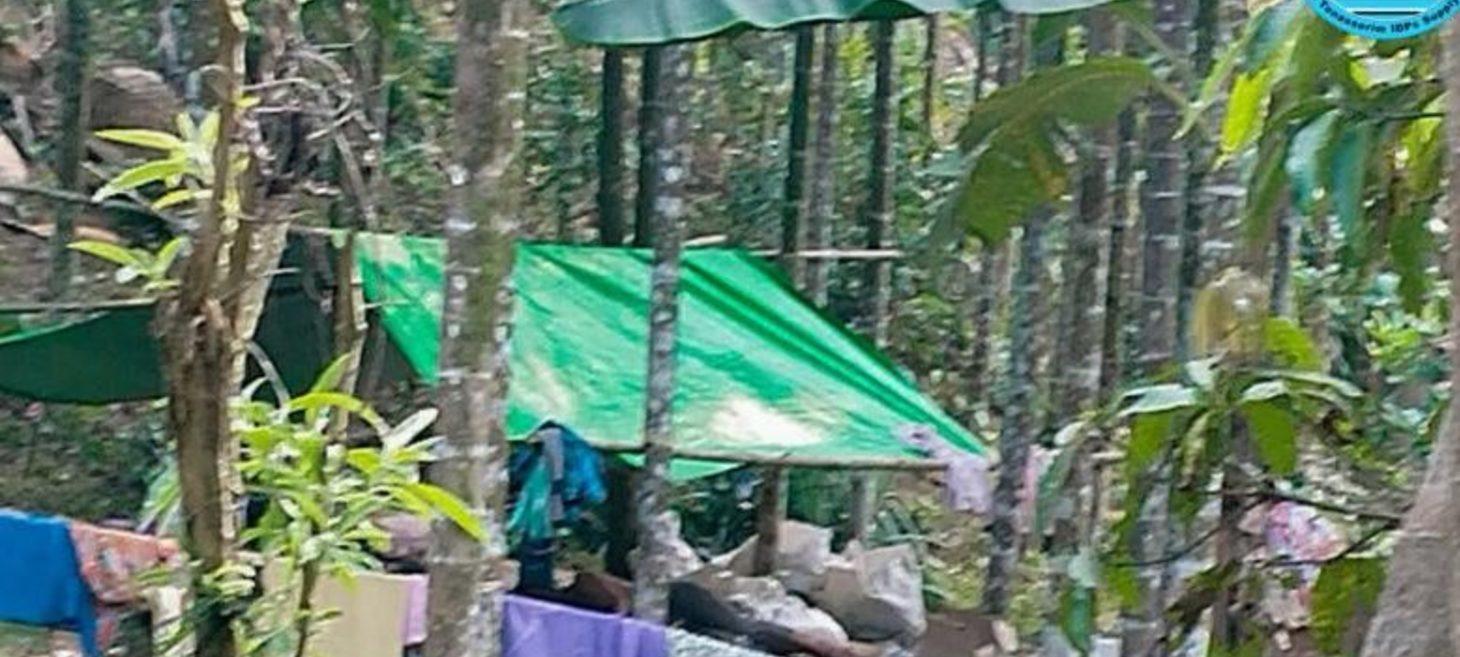
IDPs in Dawei Township Urgently Need Medication
Many internally displaced persons (IDPs) in the eastern part of Dawei Township, near the Thailand border, urgently need medication due to an increase in flu and malaria cases. The poor living conditions of the IDPs are worsening their illnesses. In addition to medication, they also require better accommodations and food, as they are unable to return home. Warm clothing, blankets, and mosquito nets are critically needed, with some families lacking sufficient supplies. Approximately 60,000 IDPs reside in the Tanintharyi Region.
Military
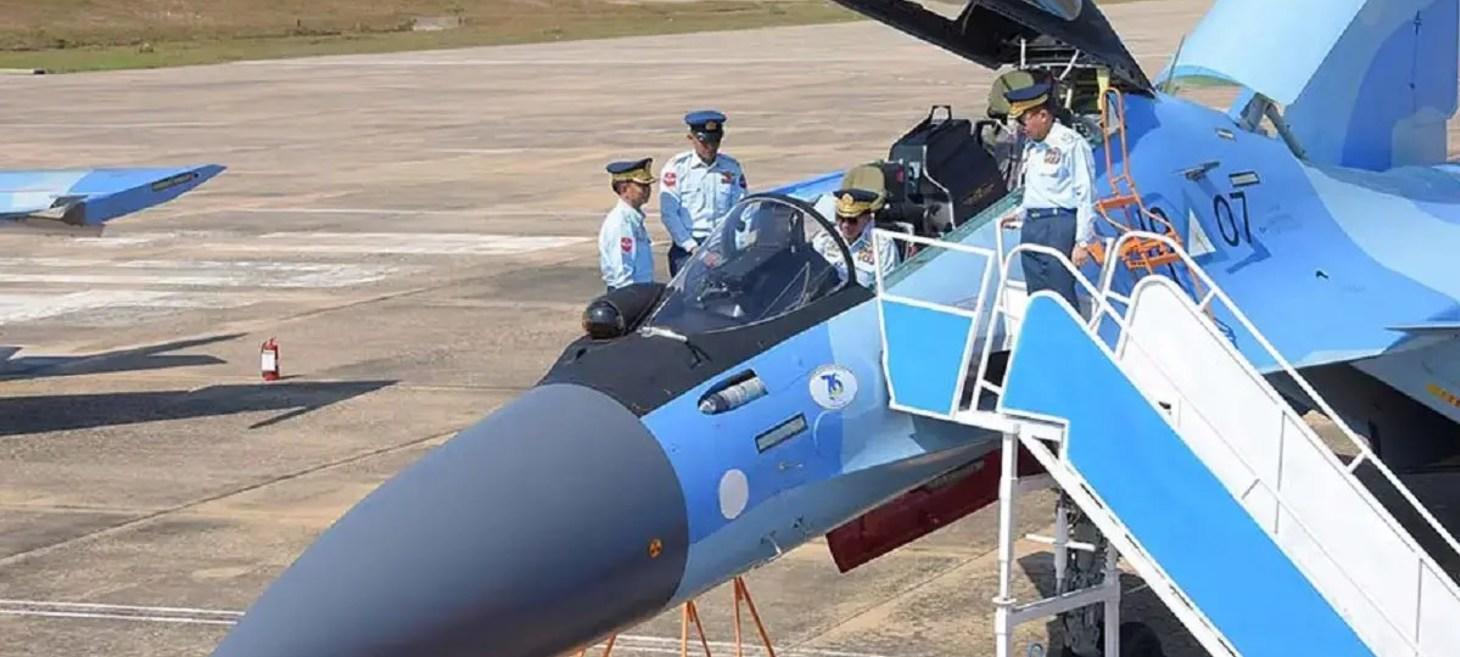
Russia Completes Delivery of Six Sukhoi Su-30SME Multirole Fighters to Myanmar Air Force
The Myanmar Air Force (MAF) has finalized its acquisition of six Russian-made Sukhoi Su-30SME multirole fighter jets, delivered on December 15, 2024, through financing from a Russian loan. The last two aircraft were commissioned at Meiktila Air Base during the MAF’s 77th anniversary celebrations. These Su-30SMEs, stationed at Naypyidaw Air Base, will enhance the MAF’s operational reach and are designed to support ground forces in counter-insurgency operations, as well as provide logistical support, transport, and close air support. The Su-30SME platform outmatches the MAF's Chinese- and Pakistani-made JF-17 Thunder fighter jets in terms of speed, altitude, and payload, which have faced structural issues. With advanced avionics, a top speed of Mach 1.75, and a payload capacity of 8,000 kilograms, the Su-30SME is a formidable multirole platform. The delivery also included training and technical teams to help integrate these jets into the MAF's fleet.
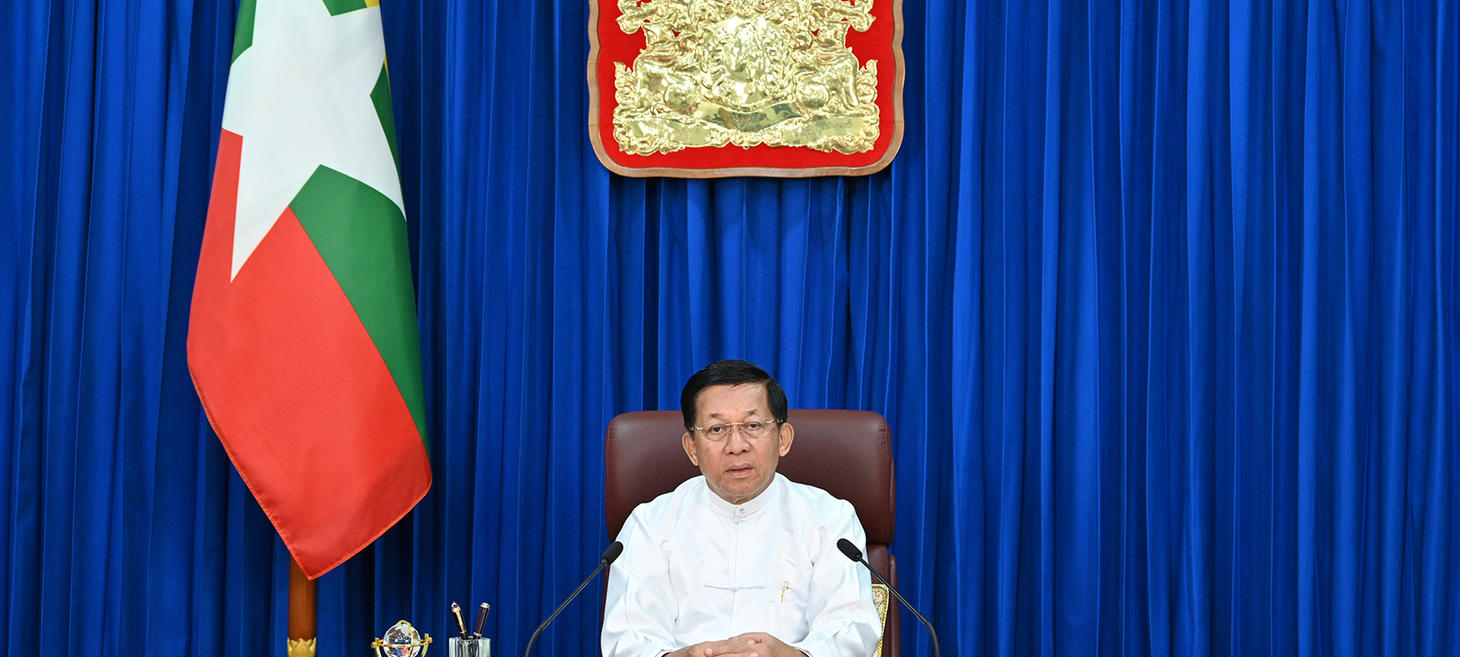
Myanmar Junta Boss Warns Resistance as Regime Loses Ground Nationwide
Myanmar's junta chief, Min Aung Hlaing, has declared that his regime will not yield to demands from armed groups fighting for democracy or autonomy, despite significant territorial losses. The regime has lost control of multiple townships in Rakhine State, with the Arakan Army now overseeing 14 of the 17 townships, and has also ceded nearly all of northern Shan State to ethnic forces. The junta's setbacks have exposed bordering regions to potential resistance attacks and have prompted the deployment of regime forces. The civilian National Unity Government (NUG) claims resistance forces control 144 of 330 townships, while nearly 15,000 regime soldiers and police have defected. Min Aung Hlaing has attempted to boost morale through military honors, yet his actions have faced criticism, particularly as he was seen celebrating a sports festival while his troops were under siege. The junta chief has also accused ethnic leaders of attempting to break up the Union.
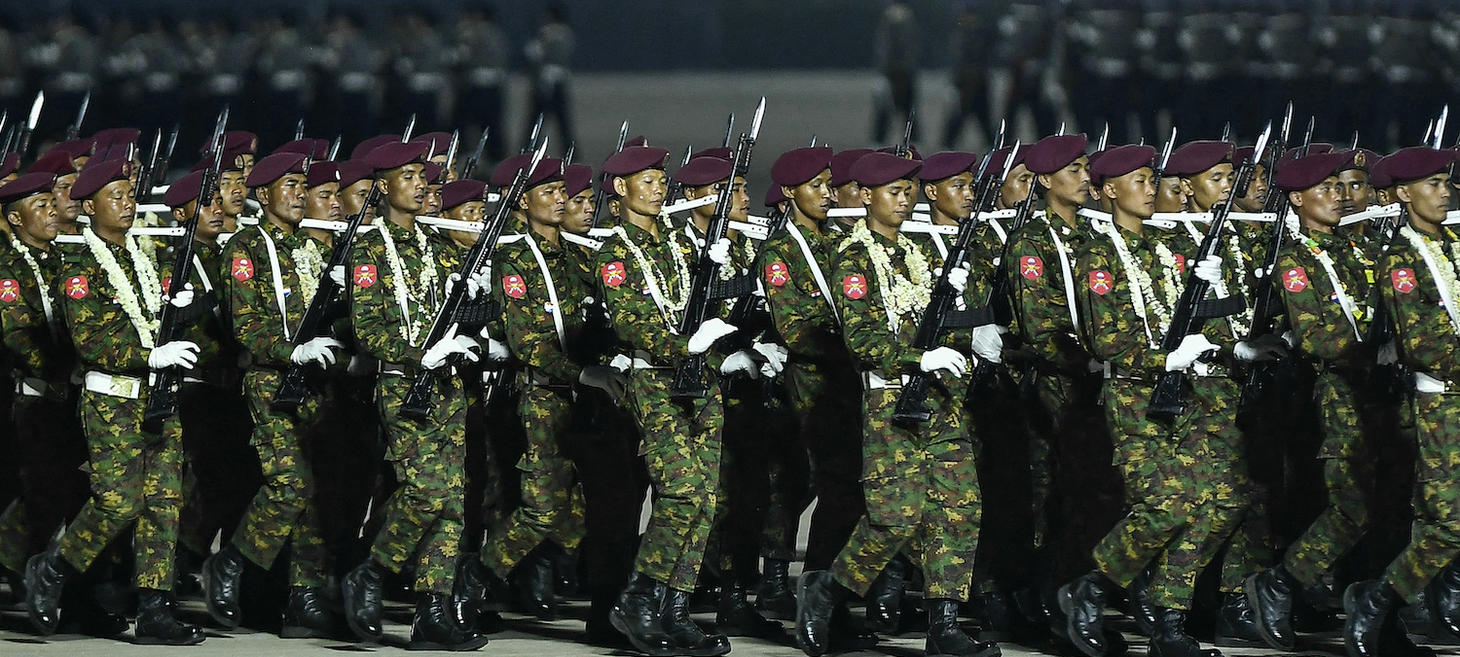
‘It was all lies’: Myanmar’s military widows denied pensions and payouts
The Myanmar military junta is reportedly failing to provide pensions and compensation to the families of soldiers killed in action, despite promises to do so. This is especially true for soldiers who are listed as missing in action, rather than killed, since the military requires a body to confirm a death and provide benefits. Families of conscripted soldiers appear to fare worse than those of career soldiers, with some not receiving any payments at all. Even when payments are made, there are reports of delays, reductions, or potential misappropriation. The junta's financial difficulties and their desire to avoid large payouts may motivate the denial of benefits. Additionally, the families of fallen soldiers report not receiving life insurance payments, despite mandatory participation in a military life insurance program. These issues contradict the junta's claims of caring for soldiers' families and underscore the financial struggles of the military.
Politics
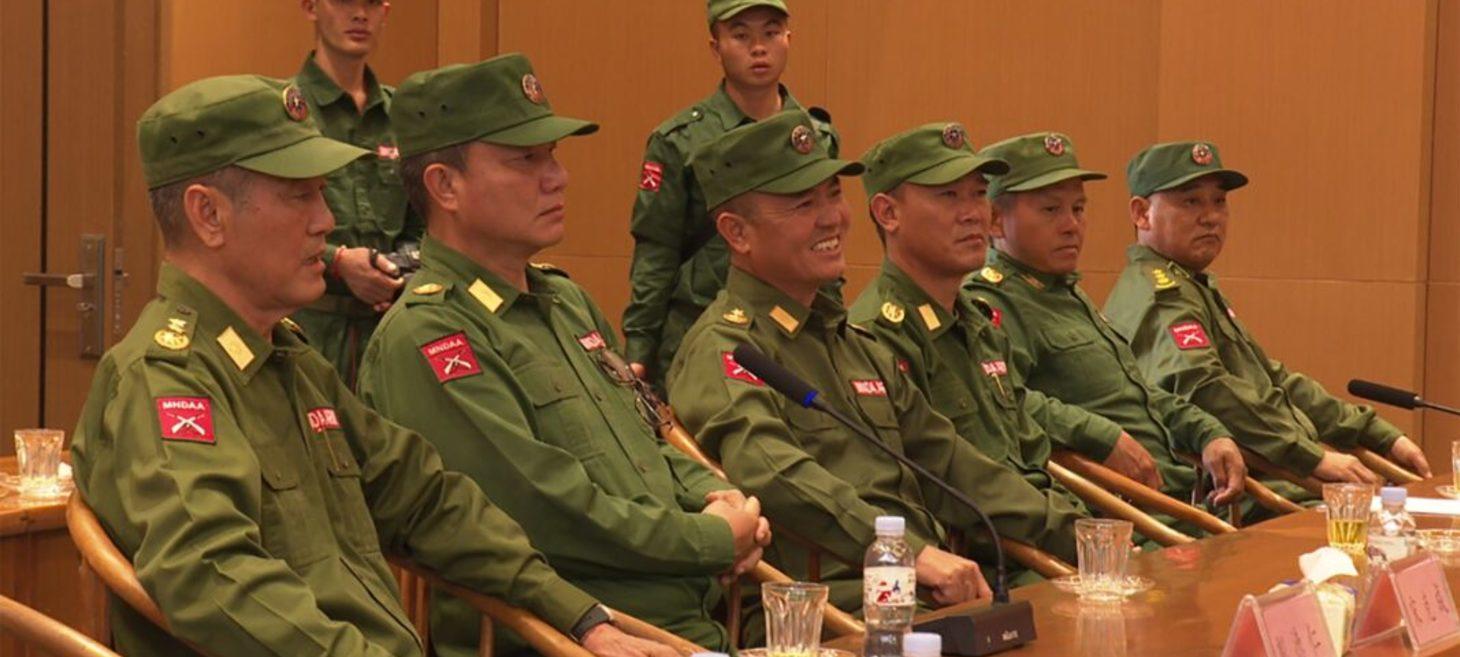
Junta/MNDAA Peace Talks Doomed to Fail
Peace talks between the Myanmar junta and the Myanmar National Democratic Alliance Army (MNDAA) in Kunming, China, on December 15, 2024, failed because the junta demanded that the MNDAA withdraw from Lashio Town, release prisoners of war, and reopen border crossings to China. The MNDAA rejected these demands and instead requested that Lashio Township become an autonomous region under their control. A political analyst stated that the demands from both sides were unacceptable to the other, making further talks unlikely to succeed. China has also applied private pressure on the MNDAA to withdraw from Lashio Town. Following the failed talks, the junta launched airstrikes, causing civilians in the area to live in fear. Despite the unsuccessful negotiations, another round of talks is scheduled for January 2025. The junta is also diversifying its tactics, such as lobbying neutral parties and releasing political prisoners, which may aim to initiate negotiations.
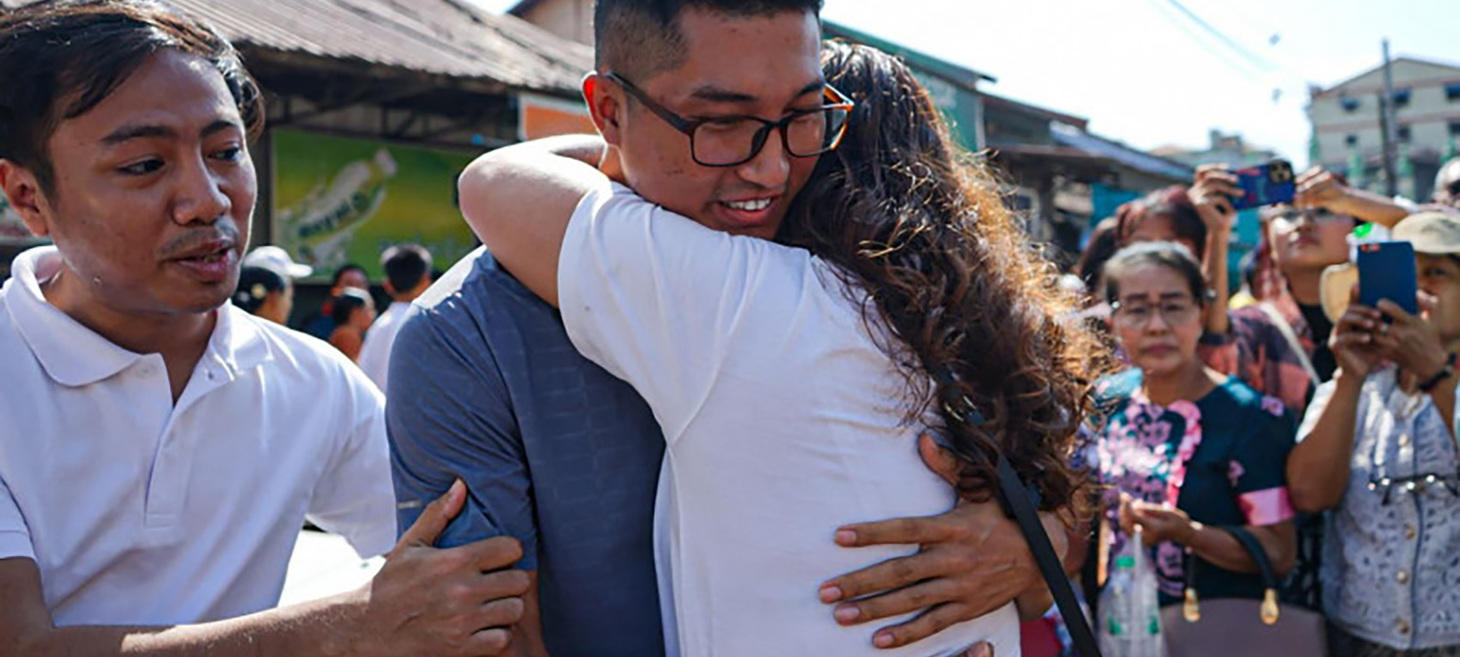
Myanmar Releases 151 Thai Prisoners, but Not Detained Fishing Crew
On Saturday, Myanmar released 151 Thai prisoners as part of an annual amnesty to commemorate its independence day; these prisoners were repatriated to Thailand via the second Thai-Myanmar Friendship Bridge in Chiang Rai. The released prisoners were among approximately 180 foreign detainees, the majority of whom were Thai and Indonesian nationals, arrested for online gambling or illegal fishing. However, four Thai crew members from fishing vessels detained in late November for allegedly entering Myanmar's waters were not included in the release. The Thai police will screen the 151 repatriated individuals to distinguish between those who were victims and those who were active members of online gambling or call center scam gangs. The four fishermen were captured after a gun attack on their boats by Myanmar patrols, resulting in one crew member's death. It is uncertain if they can still anticipate an early New Year release, as suggested by Thai officials.
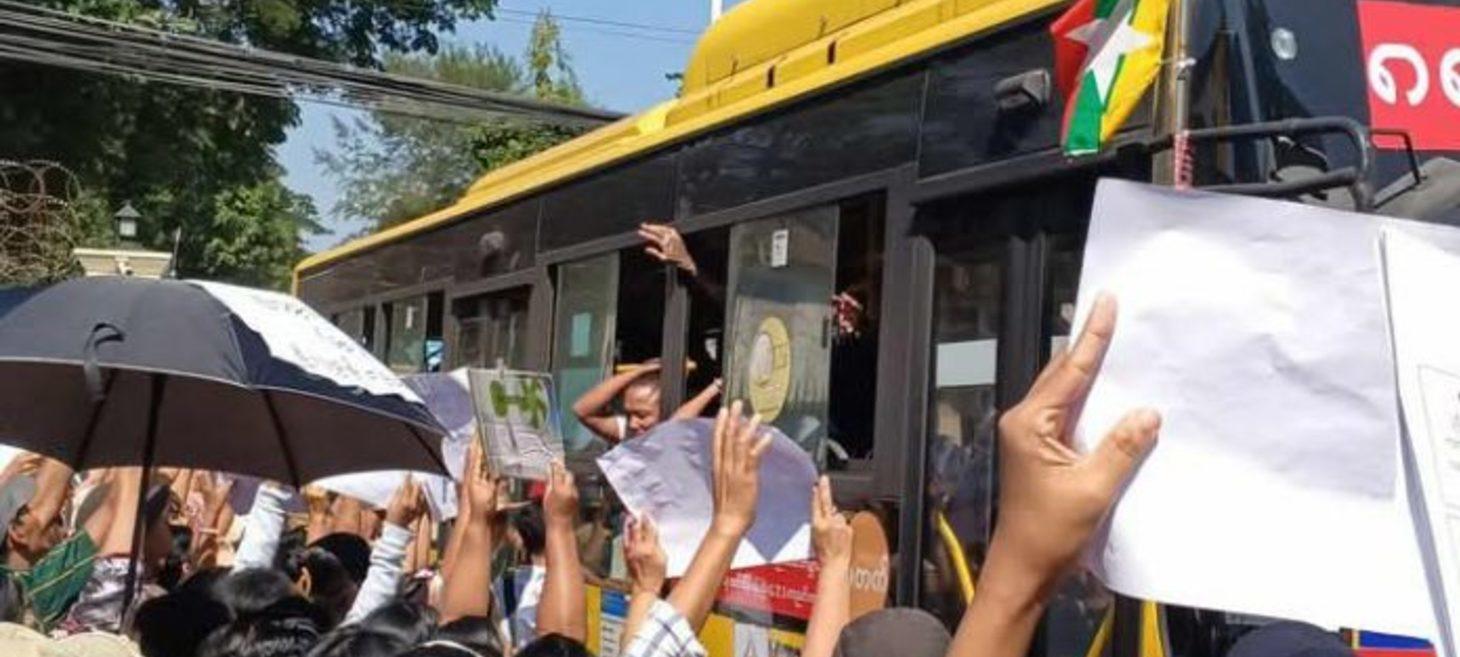
Regime announces release of 600 political prisoners in Independence Day amnesty
On Myanmar's 77th Independence Day, the regime announced an amnesty, releasing 6,044 prisoners, including 600 political prisoners who had been jailed for incitement and spreading false information. The amnesty included Kachin State Chief Minister Khet Aung, who was removed from his position and imprisoned following the 2021 coup, along with 19 female political prisoners who participated in the "Flower Strikes." Some of those released include actress and model Thinzar Wint Kyaw and possibly model Nang Mwe San, although this has not yet been verified by DVB. Approximately 200 military personnel imprisoned for desertion were also pardoned to allow their return to the army. The Assistance Association for Political Prisoners (AAPP) reports that 21,499 political prisoners remain detained since the 2021 coup.
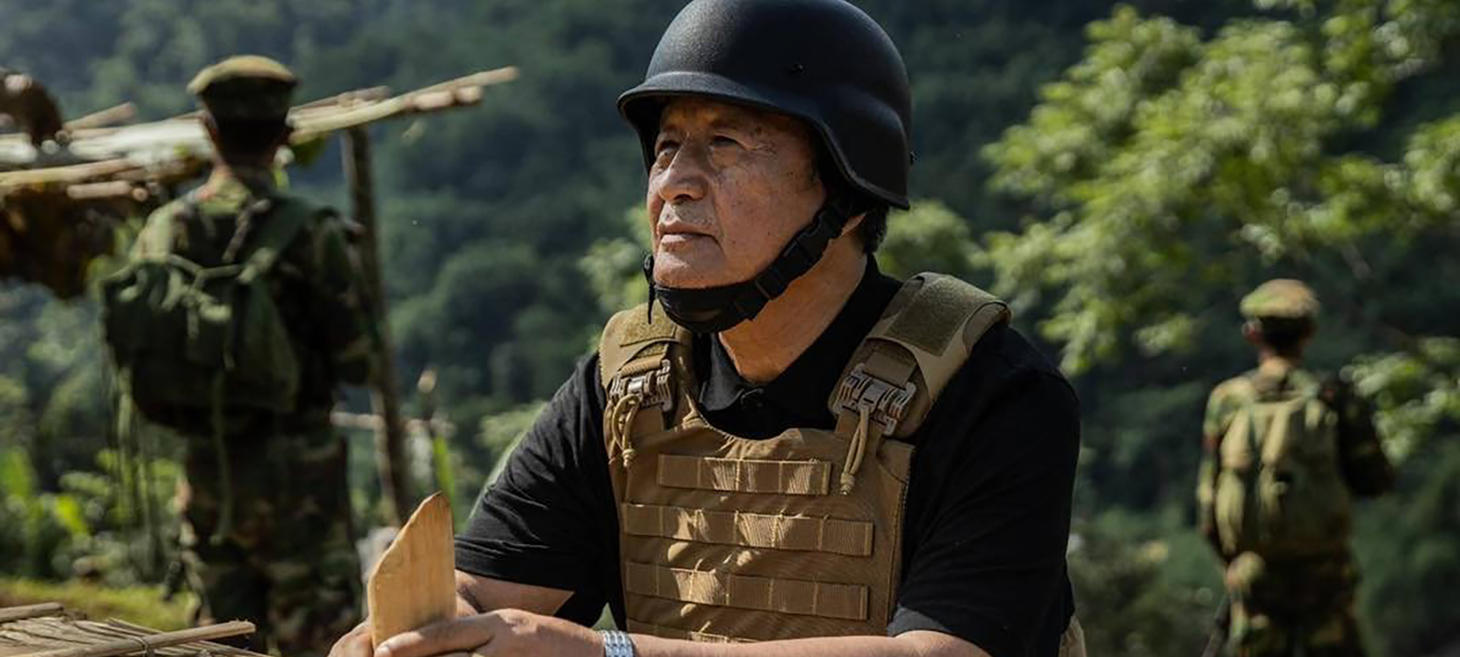
Myanmar NUG Acting President Vows Reforms in New Year Speech
In his New Year address, the acting president of the National Unity Government (NUG), Duwa Lashi La, acknowledged deficiencies in leadership and systemic flaws that have negatively impacted the people during this revolutionary period. He noted that the NUG's defense, administration, and security forces have their limitations. The acting president pledged to strengthen ground-level forces, improve their effectiveness, and implement reforms within the NUG ministries. Duwa Lashi La urged capable individuals to join the NUG to fulfill its responsibilities, emphasizing that the government welcomes those who can take on current roles and lead more broadly. He also called for unity and cooperation among ethnic armed organizations to dismantle the junta regime by 2025. Conversely, junta leader General Min Aung Hlaing admitted that armed conflict remains a significant challenge and stated that his efforts are aimed at resolving these conflicts. Additionally, the acting president urged junta personnel to defect and join the people's side, assuring them of safety if they choose to do so.
Telecommunications
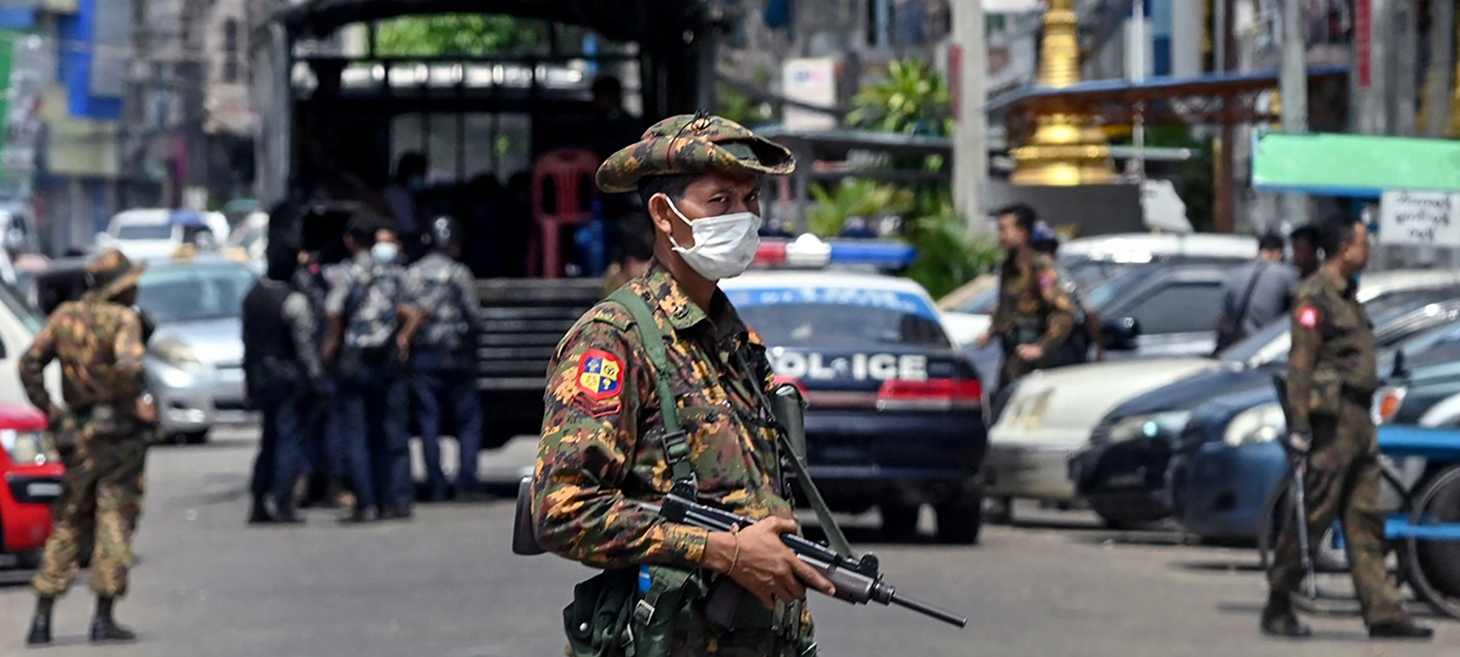
Junta’s Draconian Cybersecurity Law Targets Online Critics
The Myanmar junta has enacted a cybersecurity law aimed at suppressing dissent and controlling the flow of information. This law, initiated shortly after the 2021 coup, criminalizes the use of VPNs, penalizes users for accessing or sharing information from banned sites, and grants the regime broad powers to access user data, arrest critics, and conduct online surveillance. It also targets online gambling and other prohibited cyber activities. The law has been widely criticized by rights groups, who argue that it violates fundamental human rights such as freedom of expression and access to information. Despite the junta's attempts to silence dissent, people have continued using VPNs to circumvent restrictions, and the regime has responded with random searches and arrests, highlighting the law's failure to fully suppress resistance. The junta has arrested 1,840 individuals for criticizing it online between February 2022 and October 2024, including at least 351 in the past year, with Yangon and Mandalay being significant hotspots.
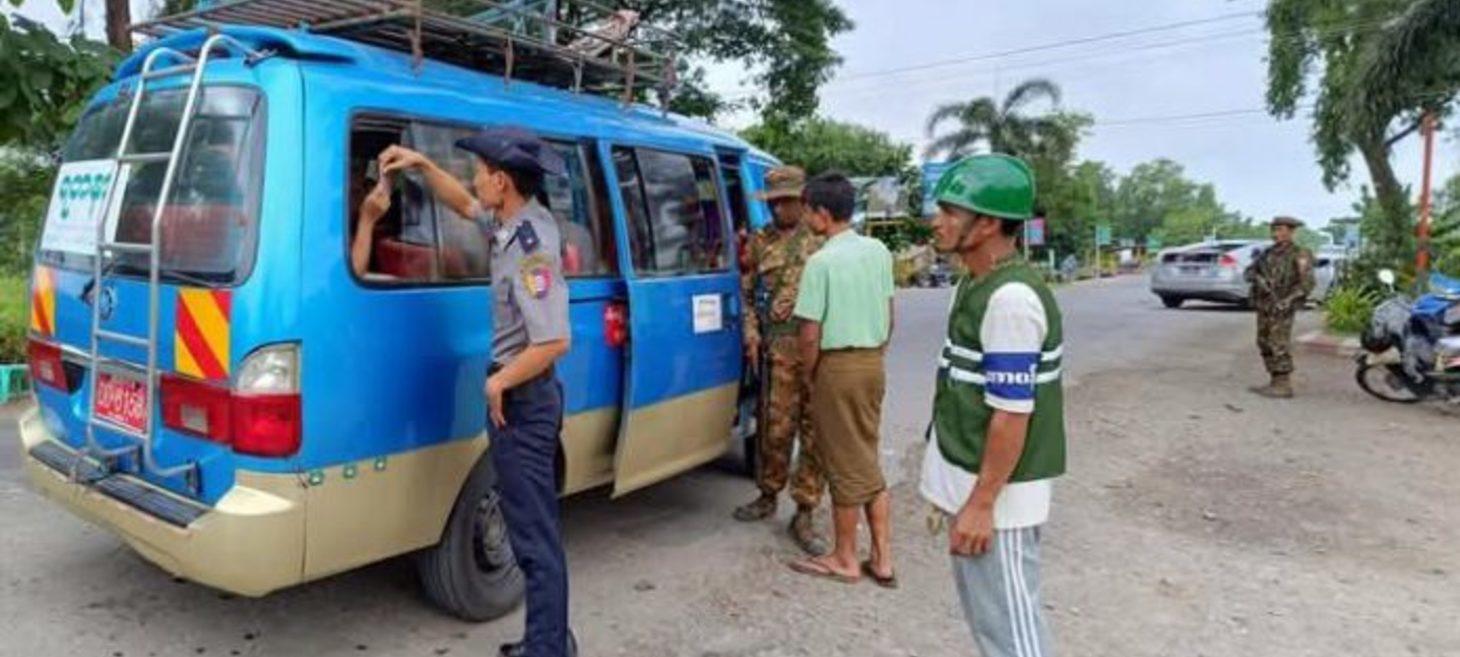
Regime enacts its long-awaited Cyber Security Law in Myanmar
Myanmar's regime has enacted a cyber security law that has been widely criticized for infringing on basic human rights. The law, which consists of 16 chapters and 88 articles, regulates Virtual Private Networks (VPNs), commonly used to bypass blocked websites. Individuals who set up VPNs without authorization could face up to six months in prison or a fine of 10 million kyat (approximately $2,300 USD). Additionally, the law encompasses provisions for monitoring internet traffic and restricting access to only approved IP addresses. Since the military coup in 2021, the regime has limited access to VPNs and imposed internet blackouts in areas experiencing protests and violence. According to Freedom House, Myanmar's internet is among the least free globally, comparable to that of China. The military has utilized the law to perform spot checks on mobile phones and has demanded bribes from individuals found using VPNs. The law is perceived as a mechanism for censorship, surveillance, and the suppression of dissent.
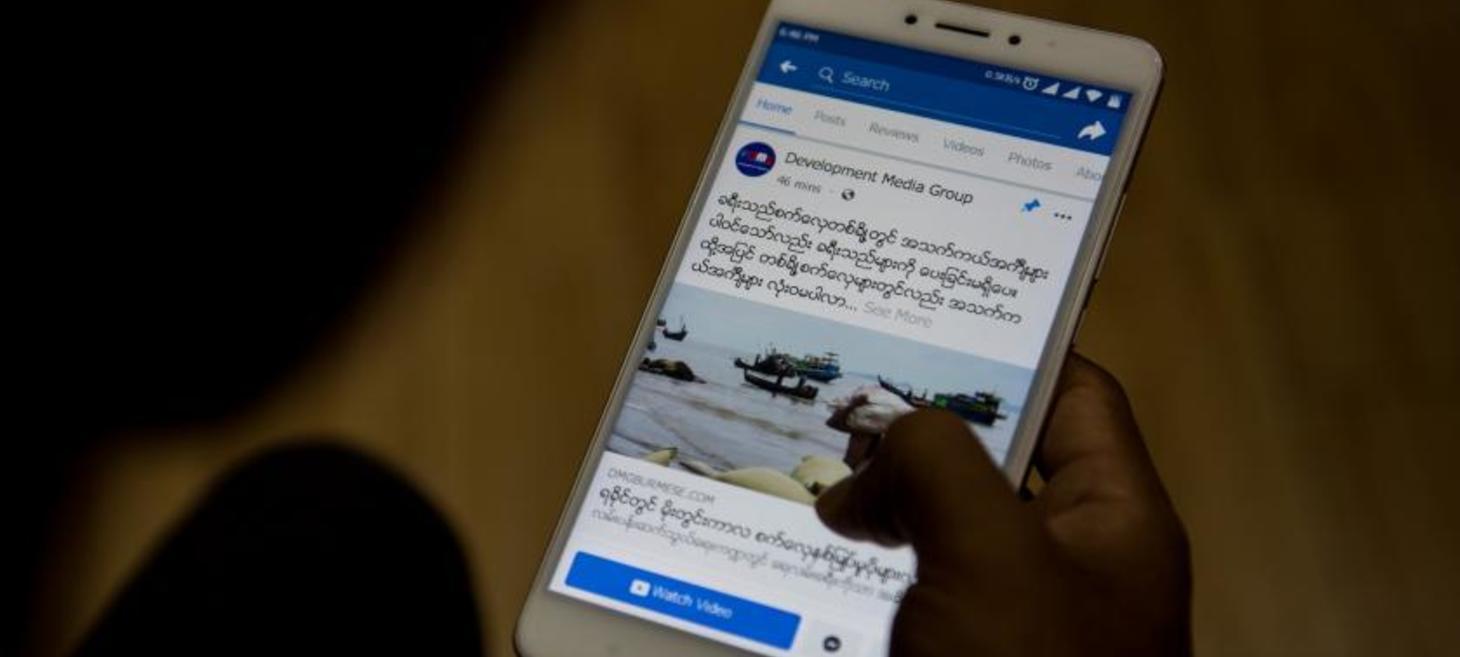
Junta rolls out new cybersecurity law, clamping down on digital rights
Myanmar's military regime has enacted a new cybersecurity law that faces criticism for its potential to stifle dissent. The law, which took effect on January 1, 2025, includes provisions that permit prison sentences and fines for cyber misuse and online gambling, and mandates that digital platforms store user data for up to three years. Critics contend that the law will be used to further oppress citizens rather than protect them, and will criminalize VPN use, intensify surveillance, and silence dissent. Additionally, the law will monitor the sharing of information about "terrorist groups" through electronic technology and social networks, including phones, computers, and the internet. An official from the Myanmar Internet Project noted that the law will likely be utilized "as another weapon to further oppression," rather than to safeguard digital rights.